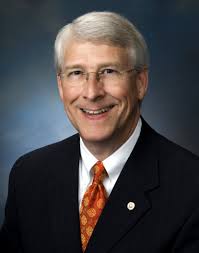
Concerns About Regulation, Taxes, and Political Partisanship Continue to Hurt Optimism.
At the end of last year, a Gallup poll surveyed small business owners about their outlook for 2014. Nearly half said they were no more optimistic than a year ago, while more than a fourth said they were even less optimistic. The economy, Obamacare, and the government were named as major challenges.
It is not difficult to see why the past year failed to inspire much confidence. Budget battles in Washington and the disastrous rollout of the President’s health-care law caused uncertainty and worry among consumers, businesses, and investors alike. In Congress, gridlock replaced leadership. Dysfunction eclipsed regular order.
Avoiding Another Shutdown
Now, only a few weeks into 2014, Congress has an opportunity to shift the momentum and send a signal to Americans that the lessons of 2013 have been heeded. Although flawed in many ways, the bipartisan agreement to fund the government through the rest of the fiscal year had the effect of avoiding another government shutdown and replacing last-minute stopgap measures. This framework should underscore the need to return to a normal appropriations process, in which the House of Representatives and the Senate consider spending bills before the start of each fiscal year. It is appalling that Senate Majority Leader Harry Reid (D-Nev.) did not allow a single appropriations bill to come to the floor for consideration before the end of fiscal year 2013.
Planning for the Future
America’s job creators understand the importance of a budget framework and long-term planning. Part of this involves assessing how government policy will affect them over the coming year and beyond. Taxes and regulation, in particular, can have a big impact and have already raised concerns this year. Many small businesses, for example, are wondering whether Congress will renew dozens of tax provisions that expired at the end of the year, such as credits for research and development.
Others are dealing with the excessive regulations as well as compliance costs associated with the health-care law. In each case, uncertainty is hampering how individuals and businesses plan for the future. In the CEO Economic Outlook Survey released by Business Roundtable in December, 39 percent of CEOs said regulations were their biggest cost concern – topping responses for the third year in a row.
According to some economists, this uncertainty is not only affecting individuals and businesses but also having a significant impact on the entire economy. Academics from Stanford University, Princeton University, and the University of Chicago argue that uncertainty about regulation, taxes, and political partisanship is contributing to sluggish economic growth.
In a paper presented at the recent annual meeting of the American Economic Association, these experts contend that political polarization produces the “expectation of more extreme policies, less policy stability, and less capacity of policy makers to address pressing problems.” Power grabs from the executive branch add to the problem, as unelected bureaucrats make decisions affecting American lives. The Obama Administration’s habit of bypassing Congress has certainly not improved expectations, instead allowing a big-government agenda to suppress private-sector solutions.
Encouraging more certainty and confidence among job creators would be a crucial step toward reviving the economy and keeping U.S. business competitive in the year ahead. Congress should focus on policies that empower Americans – not the government – to fuel economic growth, while working to remove the negative effects of the President’s health-care law and curbing regulatory overreach. Until the current climate of uncertainty changes, a lasting economic recovery will remain elusive.
Sen. Wicker is a Republican senetor from Mississippi

